第12章 Chapter 4(1)
1826-1833
First Impressions of Keats and Shelley --Prolonged Influence of Shelley --Details of Home Education --Its Effects --Youthful Restlessness --Counteracting Love of Home --Early Friendships:Alfred Domett,Joseph Arnould,the Silverthornes --Choice of Poetry as a Profession --Alternative Suggestions;mistaken Rumours concerning them --Interest in Art --Love of good Theatrical Performances --Talent for Acting --Final Preparation for Literary Life.
At the period at which we have arrived,which is that of his leaving school and completing his fourteenth year,another and a significant influence was dawning on Robert Browning's life --the influence of the poet Shelley.
Mr.Sharp writes,and I could only state the facts in similar words,'Passing a bookstall one day,he saw,in a box of second-hand volumes,a little book advertised as "Mr.Shelley's Atheistical Poem:very scarce."'
...'From vague remarks in reply to his inquiries,and from one or two casual allusions,he learned that there really was a poet called Shelley;that he had written several volumes;that he was dead.'
...'He begged his mother to procure him Shelley's works,a request not easily complied with,for the excellent reason that not one of the local booksellers had even heard of the poet's name.
Ultimately,however,Mrs.Browning learned that what she sought was procurable at the Olliers',in Vere Street,London.'
Mrs.Browning went to Messrs.Ollier,and brought back 'most of Shelley's writings,all in their first edition,with the exception of "The Cenci".'She brought also three volumes of the still less known John Keats,on being assured that one who liked Shelley's works would like these also.
Keats and Shelley must always remain connected in this epoch of Mr.Browning's poetic growth.They indeed came to him as the two nightingales which,he told some friends,sang together in the May-night which closed this eventful day:
one in the laburnum in his father's garden,the other in a copper beech which stood on adjoining ground --with the difference indeed,that he must often have listened to the feathered singers before,while the two new human voices sounded from what were to him,as to so many later hearers,unknown heights and depths of the imaginative world.Their utterance was,to such a spirit as his,the last,as in a certain sense the first,word of what poetry can say;and no one who has ever heard him read the 'Ode to a Nightingale',and repeat in the same subdued tones,as if continuing his own thoughts,some line from 'Epipsychidion',can doubt that they retained a lasting and almost equal place in his poet's heart.But the two cannot be regarded as equals in their relation to his life,and it would be a great mistake to impute to either any important influence upon his genius.
We may catch some fleeting echoes of Keats's melody in 'Pippa Passes';it is almost a commonplace that some measure of Shelleyan fancy is recognizable in 'Pauline'.But the poetic individuality of Robert Browning was stronger than any circumstance through which it could be fed.
It would have found nourishment in desert air.With his first accepted work he threw off what was foreign to his poetic nature,to be thenceforward his own never-to-be-subdued and never-to-be-mistaken self.If Shelley became,and long remained for him,the greatest poet of his age --of almost any age --it was not because he held him greatest in the poetic art,but because in his case,beyond all others,he believed its exercise to have been prompted by the truest spiritual inspiration.
It is difficult to trace the process by which this conviction formed itself in the boy's mind;still more to account for the strong personal tenderness which accompanied it.The facts can have been scarcely known which were to present Shelley to his imagination as a maligned and persecuted man.
It is hard to judge how far such human qualities as we now read into his work,could be apparent to one who only approached him through it.
But the extra-human note in Shelley's genius irresistibly suggested to the Browning of fourteen,as it still did to the Browning of forty,the presence of a lofty spirit,one dwelling in the communion of higher things.There was often a deep sadness in his utterance;the consecration of an early death was upon him.And so the worship rooted itself and grew.It was to find its lyrical expression in 'Pauline';its rational and,from the writer's point of view,philosophic justification in the prose essay on Shelley,published eighteen years afterwards.
It may appear inconsistent with the nature of this influence that it began by appealing to him in a subversive form.
The Shelley whom Browning first loved was the Shelley of 'Queen Mab',the Shelley who would have remodelled the whole system of religious belief,as of human duty and rights;and the earliest result of the new development was that he became a professing atheist,and,for two years,a practising vegetarian.He returned to his natural diet when he found his eyesight becoming weak.The atheism cured itself;we do not exactly know when or how.What we do know is,that it was with him a passing state of moral or imaginative rebellion,and not one of rational doubt.His mind was not so constituted that such doubt could fasten itself upon it;nor did he ever in after-life speak of this period of negation except as an access of boyish folly,with which his maturer self could have no concern.
The return to religious belief did not shake his faith in his new prophet.
It only made him willing to admit that he had misread him.